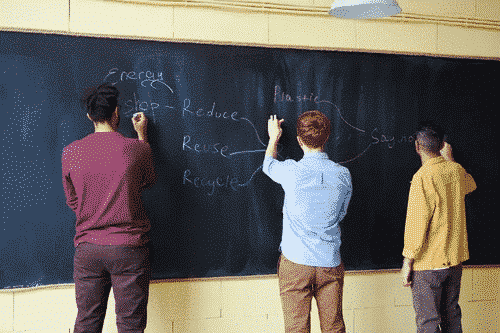As a 10th grader, it’s easy to think about college as a problem to not worry about until later. However, the classes you choose now can significantly impact your future goals and influence what major you end up picking. Most importantly, picking the right courses and performing well can help your GPA and influence your college applications later.
Related: How To Make Your College Application Stand Out
What to Keep in Mind
There are several factors to consider as you go about choosing your upcoming college courses. Firstly, you should think about what classes your school offers and what classes you may be able to self-study to earn AP credit. You should then consider the courses you have an interest in – high school is a great way to get background knowledge that you can leverage as a college student. Finally, make sure that you’re ready for the intensity of the classes you chose. In this blog, we’ll be going more in depth to discuss various tenth-grade classes and the merits behind them.
Questions to Ask Yourself
Before you pick your college class, there are a few questions you need to consider. Asking these questions is essential to understanding what you want out of your high school education and what you hope to learn.
What Are Your School’s Graduation Requirements?

First of all, you have to consider what requirements your high school and state have for rising sophomores. Most states will require at least one of each core class, and some schools may even prevent you from taking more than one of each. If this is the case, it is best to consider each course’s difficulty and your level of interest. Also, you should make sure to meet your school’s wild card graduation requirements. This includes elective requirements, such as fine arts and humanities, and other random requirements. Finally, be sure to take the required number of classes each semester.
What About AP or IB Courses?
If you’re up for a challenge, taking AP and IB classes is a great way to go. Depending on how commonly AP/IB classes are at your school (or if your school offers them at all), there may be a varying level of difficulty. Schools that provide many of these challenging courses tend to make each class easier to compensate for the immense average student workload. You should also be sure to truly enjoy the classes you choose to take at an IB or AP level – these are already challenging courses, but it’s even harder to do the work if you don’t enjoy it.
What College Do You Hoping to Attend?
The college you want to attend has a large bearing on what classes you should take. First of all, some colleges may require that specific courses are taken before attendance (for example, the Texas CSB honors program at UT Austin highly recommends that students have already taken AP Computer Science A before college). As a result, even though it’s early, you should take your dream colleges’ admissions requirements into account. Moreover, the prestige/difficulty of the colleges you want to attend should be a factor. Colleges that are more selective with their applicant pool tend to look for candidates who have taken many AP or IB classes available.
Related: How To Get College Scholarships
Work to Your Strengths & Interests

The fastest way to burn out and take too many advanced courses is to take difficult classes that do not align with your interests. For that reason, you should make sure to focus your most difficult courses (AP or IB courses) on classes that you genuinely have an interest in. For classes you don’t like, it may be preferable to take the honors or CP version of the course to not over-burden yourself. It is good to challenge yourself, but make sure you are reasonable and mindful of your abilities. At the same time, don’t be too easy on yourself – competitive colleges will make sure you challenged yourself and took many of the most challenging classes available.
Curious about what else you can do to further advance your candidacy for college while still in high school? Be sure to book a call with Beta Bowl for more information!
Follow Your Joy
However, being good at a class isn’t the only metric you should consider when picking classes – finding classes you have a genuine interest in is also essential. If you enjoy a course and have a natural talent for it, you should be able to breeze through it regardless of what other students say of its difficulty. For this reason, taking AP/IB courses in classes you like will give you more time to dedicate to preparing for courses in fields that you may not enjoy as much. Moreover, taking a class you want is more likely to encourage you to pursue a career in that field in the future.
The Classes to Complete Before 10th Grade
We recommend completing several classes before 10th Grade, especially if you want to be a competitive applicant for extremely selective colleges. Firstly, you should have completed or been taking Geometry by the start of 10th Grade, depending on your school’s curriculum. Also, if you can, ninth Grade (and during middle school) is a great time to get some foreign language requirements out of the way to focus more on interest-specific courses later on. Finally, Ninth Grade is an excellent time to test out one or two AP or Pre-IB courses if you think you’re ready to take on the workload and prepare yourself for the rest of your high school career.
The 10th Grade Classes

When applying for demanding colleges, there are several classes you are expected to have completed before becoming an upperclassman. Firstly, most colleges will assume you take pre-calculus (or at least Algebra II) by the end of 10th Grade, preparing you to take AP/IB calculus sometime during senior high. Moreover, we recommend that you complete any introductory major-specific courses you can (for example, AP CS Principles for computer science majors) and other elective courses. Taking more accessible AP courses (such as AP European History or AP Human Geography) is another way to boost your GPA. However, your course selection fundamentally revolves around what the norm is at your school.
Related: Leadership Activities for High School Students
Extracurricular Activities
When choosing your 10th-grade classes, you should ensure that your workload leaves you ample time to be involved in some extracurricular activities. It also helps if your extracurriculars and school classes mesh well (such as a science class and being involved in the science bowl club). You should be aware of your interests and the time commitment of an organization when picking what extracurriculars to be involved in. Certain clubs (specifically competitive academic teams or athletic groups) can have large time commitments, so make sure you shape your schedule around this. If you ever feel overwhelmed, try to reevaluate your choice of school courses and extracurricular activities and see how you can lighten your workload.
Are you curious about which extracurricular activities you should do in high school? Click here to learn more!
How to Evaluate Your Activities
An excellent way to evaluate your activities is to ask yourself why you are in them. Do you genuinely enjoy the activity? Will it prepare you for future careers? How will it look to college admissions officers? Do you hold a leadership position in the club, or do you have the chance to later? There’s no ‘right’ answer to any of these questions, but you should consider them before selecting your extracurriculars.
What Are You Building Towards?

The most important and possibly most challenging thing to think about in concrete terms is the effect your 10th-grade courses will have on your future. Ideally, every course you take will have an impact on your future profession. While this is unrealistic (some classes are required), it is possible to select courses such that you get as much out of them as you can. For that reason, we recommend considering classes that others perceive as difficult or work-intensive, as long as you think it fulfills a part of your career trajectory. Remember – 10th Grade isn’t too early to begin thinking about your future career.
A Last Piece of Advice
Selecting classes as a 10th grader may not seem that important, but it can have an enormous impact on your college admissions and high school experience. Being aware of the various reasons behind picking each course, and the effect each class can have on your future will prepare you to choose your sophomore courses with the right prior knowledge to make an educated decision.
Related: Traits That Colleges Look For In Applications







